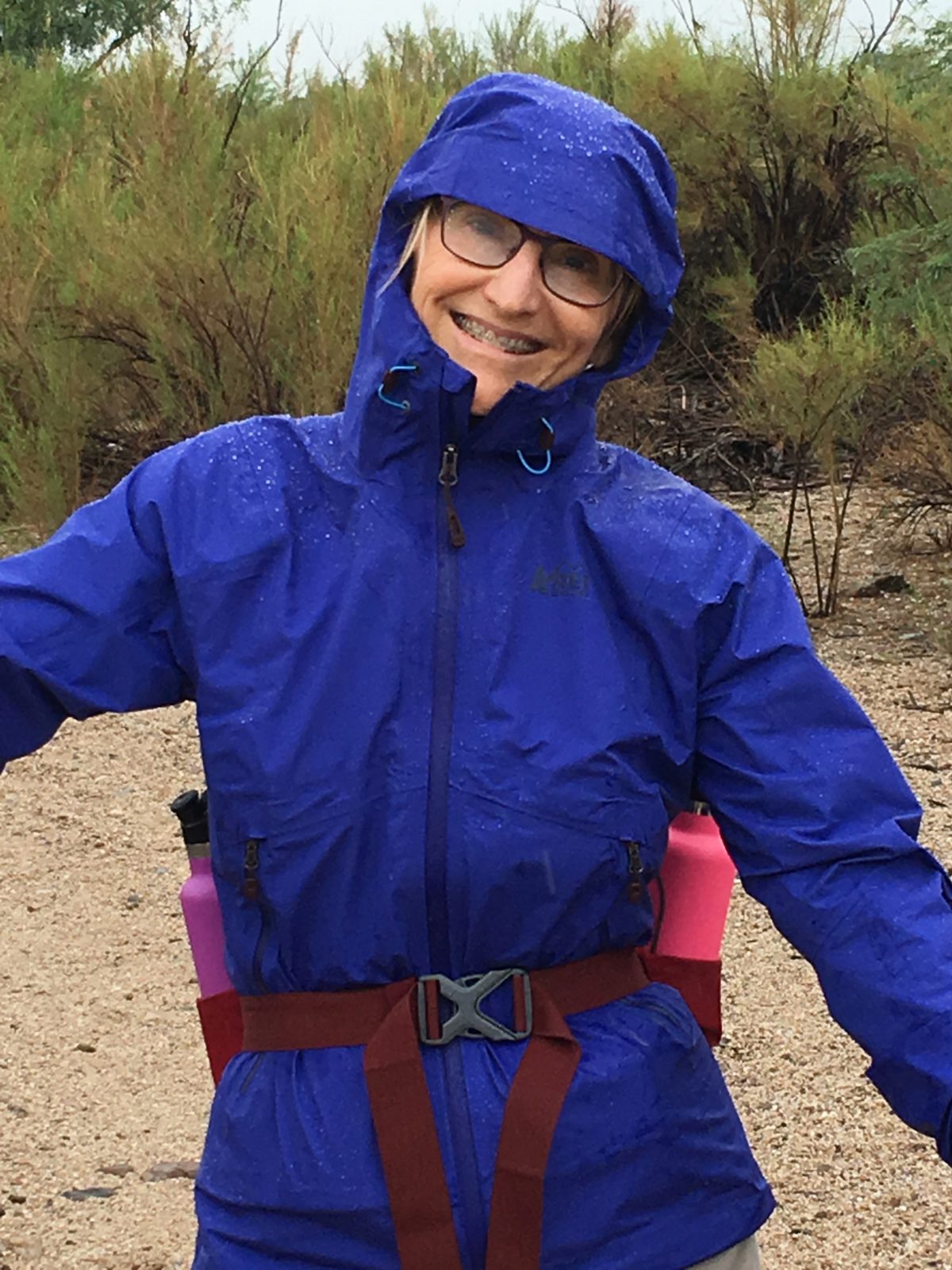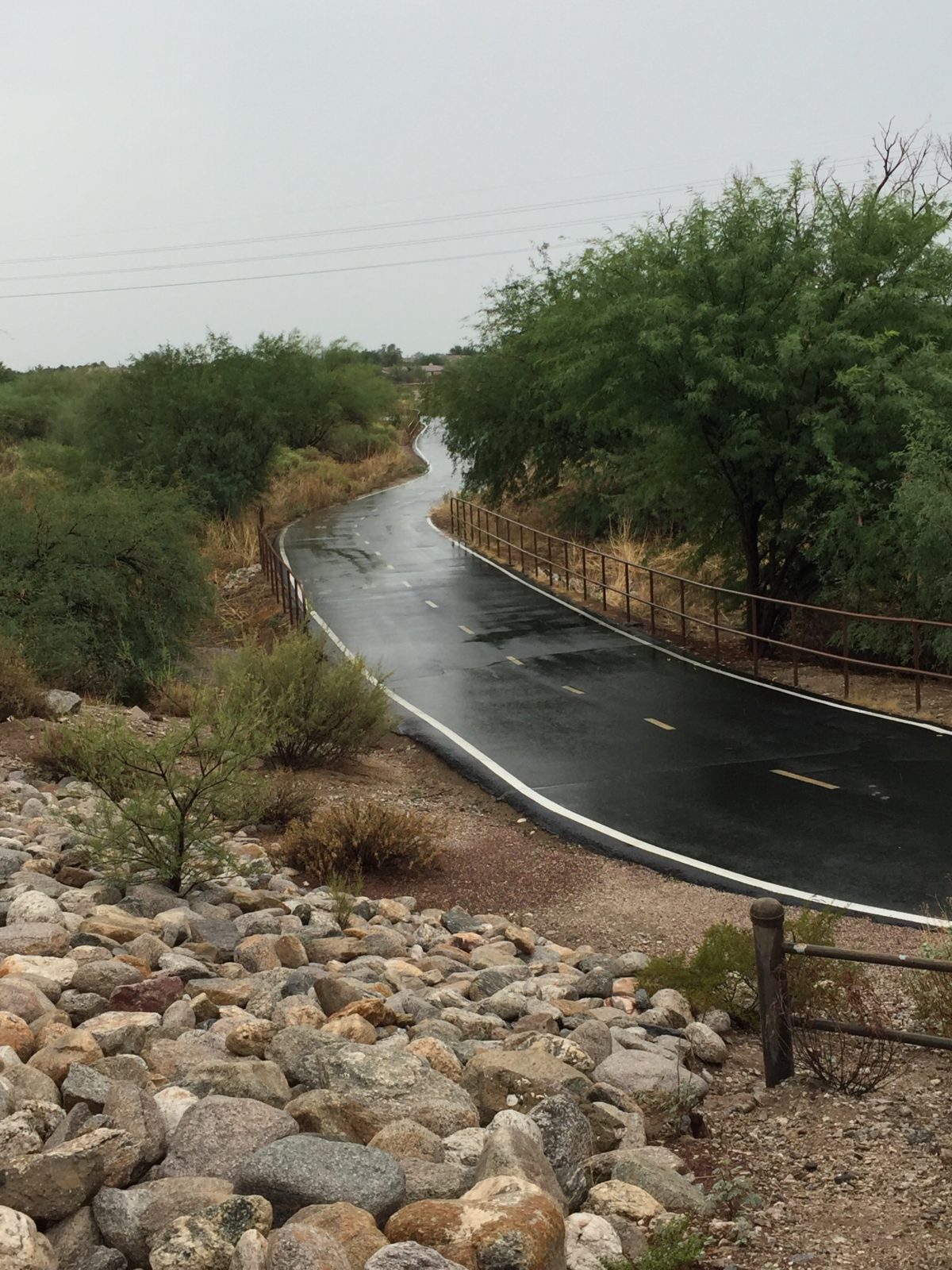I recoiled at the doctor’s post-surgery prescription: no strenuous activity for a couple of weeks.
Just how was I, with the hard-charging brain of a competitive athlete, supposed to follow that? But I knew I had to in order to give myself—and my gums and mouth—the best chance at healing. (You wouldn’t think that area of your body would care too much about how fast your blood was flowing, but it does.)
And I was concerned about how all of this down time would affect our training to walk a pilgrimage at the end of this year. At my age the exponential exercise curve takes a pretty steep, speedy drop after even one or two days without exercise.
So I did a lot of lying around and sleeping the first couple of days, which wasn’t too difficult because of the pain meds I was on. They make you sleepy, and that’s a good thing for healing. And I meandered out to the couch once-in-a-while to watch television (my beloved had himself set up at a standing work table in the living room to work with one eye and watch the World Cup Soccer games with the other. (He a former All-American level player.)
I colored in my coloring book and read a lot. The coloring was so relaxing and appealing to my artsy side that I colored for hours. I read several books—paperback, hardcover, Kindle books and magazines. (I whittled down my magazine pile significantly!) For the most part, exercise meant padding from my bedroom to the living room, kitchen and family room. I wasn’t to bend over or exert myself. (It was pretty nice not having to clean the house or do the dishes for a couple of weeks!)
Then I ventured outside to sit in the sun one morning. (You don’t want to be sitting in the June sun in Tucson past 9:00 or 10:00 AM.) The sun warming up my bones as I rocked back and forth in my patio rocking chair felt glorious. I knew it would help the healing.
When I felt a little stronger and was done with my heavy pain meds (three to four days post-surgery), I padded down the driveway (we have a longish driveway) to the mailbox and back. Then I started joining my husband for a stroll—a very slow stroll because our geriatric black lab requires S-L-O-W)—down to the cul de sac corner and back home. Since there’s a hill on the way back, I needed to pay attention to how much my heart rate elevated. I creeped up the short hill.
Then the cul de sac progressed to down to the corner, and then up another hill and around a different cul de sac with my bundle-of-energy Shetland sheepdog. She didn’t like my S-L-O-W pace, but she tolerated me. I think she knew I was sick because she’d been banished from our bedroom and from napping on our bed with me. I just couldn’t take a chance of her pouncing on my chest and plastering her signature kisses on my face. The sad look in her eyes at the banishment was hard to take.
I added a dip in the pool after my short, s-l-o-w walks and then progressed to doing light “running” and sliding (like side skipping) in the pool, being careful not to raise my heart rate too much.
But, sure enough, as soon as I started feeling a lot better and more energetic, I ramped it all up too much, crashed the day after. (I don’t always take my own advice.) I rested the next day and then struggled back. Then the day I got my stitches removed, I was so happy with the good news the doctor gave me, that I went to the gym and worked out for a couple of hours. That included about 3 miles on the treadmill and some light machine weights. Then I tooled around town to do some errands. I wasn’t in a rush, but it was a hot day, and I was out and about for almost seven hours.
And guess what happened? Yup. Crashed again.
So I’m easing back into it once more. Everyday has become a “wait and see how I feel and what I can do” kind of day. My husband and I are walking what’s known as The Loop here in Tucson, a beautiful pathway along a seasonal river. We walk just part of it and have increased our round-trip mileage to 5.2 miles. We even tested our new Gore-Tex rain jackets in the monsoon rain.
But I’m not back to doing that kind of mileage everyday, which I need to be doing to train properly for our pilgrimage. And 5.2 miles is far below what we’ll have to walk on a daily basis when we get there, even though we’re planning to take once-a-week Sabbath days.
I can’t worry about that, though. God knows where I need to be, and He’ll direct me. (I just need to pay attention.) And if we have to cut down on our daily mileage while on pilgrimage, then that’s what we need to do. And be joyful in the cutting back! There will be something to learn in long days and short.
Until then, I need to continue to pace myself, and pay attention to how I’m feeling from one day to next. Then decide if I can push myself a little more one day, or lighten the load.
For now I need to continually remind myself that I’m still in recovery, and plan accordingly.
The bonus is that in the process, I’m also learning much about pacing life so I can enjoy it more.
I think that’s a pretty good tradeoff!
Question: How have you had to change your exercise program due to surgery or injury? And how did it go for you?
NEXT WEEK: The most important part of anyone’s walking training—your feet!
Until then,
pay attention to your pace!
Blessings,
Andrea
May you prosper in all things and be in health, just as your soul prospers (3 John 2).

